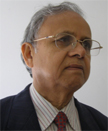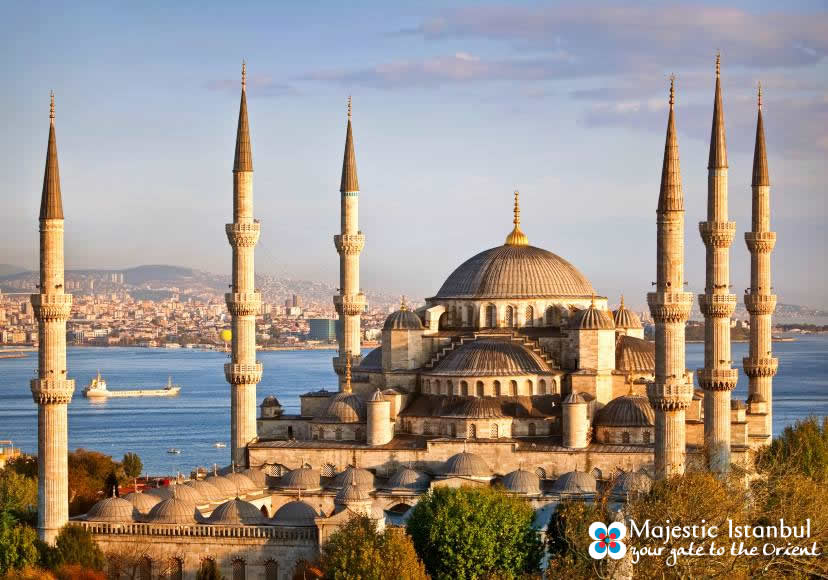www.aljazeerah.info
Opinion Editorials, December, 2016
Archives
Mission & Name
Conflict Terminology
Editorials
Gaza Holocaust
Gulf War
Isdood
Islam
News
News Photos
Opinion Editorials
US Foreign Policy (Dr. El-Najjar's Articles)
www.aljazeerah.info
|
Muslim Turkey abandoning hopes to join Christian EU By Abdus Sattar Ghazali Al-Jazeerah, CCUN, December 1, 2016 |
 |
 |
|
|
Sultan Ahmed's Blue Mosque in Istanbul, Turkey |
European Parliament votes to end accession talks with
Turkey
The European parliament Thursday voted
overwhelmingly to end EU accession talks with Turkey.
The majority
of lawmakers in the European Parliament voted to halt membership talks
with Turkey after Ankara's post-coup crackdown on the opposition with
potential ties to US-based cleric Fethullah Gulen.
More than
110,000 people in Turkey - including soldiers, academics, judges,
journalists and Kurdish leaders - have been suspended from their positions
or dismissed over their alleged backing for the plotters of a failed
military coup in July. Some 36,000 have been arrested and media outlets
have been shut.
The European parliament members voting in
Strasbourg said the parliament "strongly condemns the disproportionate
repressive measures taken in Turkey since the failed military coup attempt
(in July last)." The anti-Turkey resolution was approved by 479 votes to
37, with 107 abstentions.
The Turkish EU affairs minister, Omer
Celik, reacted promptly to the vote, calling it "null and void" and saying
it "breached basic European values." He said that the European Parliament
"loses perspective when it comes to Turkey."
His comments echo
those of President Recep Tayyip Erdogan ahead of the vote.
Addressing a meeting of the Organization for Islamic Cooperation (OIC) in
Istanbul on Wednesday, President Erdogan said: “Let me say this in
advance... Whatever the result is, in our eyes this vote has no value.”
“This country’s struggle for its stability and future won’t be interrupted
by (European legislators’) raising and lowering their hands,” Erdogan
said. “This nation has shown the world (during the failed coup attempt)
that it is not a fair-weather democrat and that it will risk its life for
its rights, its freedoms and its honor.”
Erdogan called on countries of
the OIC to stand up to the West where, he said, Muslims were being
confronted with “double standards, prejudice, alienation” and were being
attacked.
Erdogan has suggested that Turkey could hold a
referendum on the future of Turkey’s EU negotiations and that his country
could join the Shanghai Cooperation Organization, which includes Russia
and China, as an alternative to the EU.
Nearly three decades after
its official bid to join the European club, Turkey is not yet a European
Union member. Talks on possible EU membership for Turkey have been taking
place since 1963, when Ankara and Brussels drafted an association
agreement stating the country would aim to be a member of the bloc.
According to Reuters, President Erdogan, and many Turks, were angered by
the Western response to the failed coup, viewing it as more concerned
about the rights of the plotters than the gravity of the events
themselves, in which more than 240 people were killed as rogue soldiers
commandeered fighter jets and tanks.
Erdogan talks of joining the
Shanghai Cooperation Organization (SCO)
President Recep Tayyip
Erdogan has revived his pet topic of joining the Shanghai Cooperation
Organization (SCO) in place of the European
Union, Turkish journalist Semih Idiz says adding: His call comes at a
time when Turkey’s ties with the West are at an all-time low because of
Ankara’s refusal to meet Western standards of democracy, veering toward
authoritarian rule instead.
The SCO is defined as “a Eurasian
political, economic and military organization.” Joining it would mean a
radical change of sides for Turkey, Idiz said and warned that if it were
to happen, it would also have serious regional and global ramifications,
since Ankara would most probably have to not only give up on its EU bid,
but also its NATO membership.
Europe, in turn, is reluctant to
clamp down on political supporters or alleged members of the so-called
Fethullah Gulen Terror Organization, the group accused by Ankara of
planning the failed coup on July 15, Idiz pointed out. The same reluctance
is seen with regard to political supporters of the Kurdistan Workers Party
(PKK), despite the fact that the EU has also listed the PKK as a terrorist
organization.
Erdogan said he had broached the subject with
Russian President Vladimir Putin and President Nursultan Nazarbayev of
Kazakhstan. “If Turkey takes its place in the Shanghai 5, this will enable
it to act with greater ease,” Erdogan said.
Turkey is currently a
“dialogue partner” of the SCO, which is dominated by Russia and China. The
other members are Kazakhstan, Kyrgyzstan, Tajikistan and Uzbekistan. India
and Pakistan are currently undergoing accession processes. Iran also wants
to join.
There were cautiously encouraging responses from Russia
and China to Erdogan. Aleksey Pushkov, the chairman of the Duma’s Foreign
Affairs Committee, said in a Tweet, “Membership in the SCO would be a
logical step for Erdogan” because “unlike the EU, SCO members are totally
independent.” Pushkov added, however, that “the SCO is different than the
EU, which it couldn’t replace.”
Chinese Foreign Ministry
spokesperson Geng Shuang said they attached great importance to Turkey's
wish to strengthen its ties with the SCO. "We are willing, together with
other members of the [SCO] and in accordance with the rules of its legal
documents, to seriously study [Erdogan’s call] on the basis of consensus
consultation," Geng said.
Vatican opposes Turkish membership of EU
In December 2010, The Guardian reported that previously secret cables
sent from the US embassy to the Holy See in Rome indicated that the pope
is responsible for the Vatican's growing hostility towards Turkey joining
the EU.
In 2004 Cardinal Ratzinger, the future pope, spoke out
against letting a Muslim state join, although at the time the Vatican was
formally neutral on the question.
The cable released by WikiLeaks
shows that Ratzinger was the leading voice behind the Holy See's
unsuccessful drive to secure a reference to Europe's "Christian roots" in
the EU constitution. The US diplomat noted that Ratzinger "clearly
understands that allowing a Muslim country into the EU would further
weaken his case for Europe's Christian foundations".
The Vatican's
acting foreign minister, Monsignor Pietro Parolin, responded by telling US
diplomats that Ratzinger's comments were his own rather than the official
Vatican position.
But by 2006 Parolin was working for Ratzinger,
now Pope Benedict XVI, and his tone had distinctly chilled. "Neither the
pope nor the Vatican have endorsed Turkey's EU membership per se," he told
the American charge d'affaires. "
Abdus Sattar Ghazali is the
Chief Editor of the Journal of America (www.journalofamerica.net)
email: [email protected]
Share the link of this article with your facebook friends
|
|
|
|
||
|
||||||


